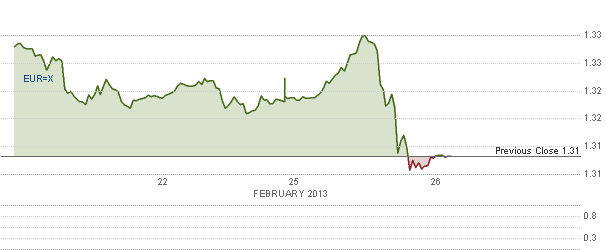More than any other person, Ben Bernanke prevented the financial collapse of the United States of America. But, in doing so, he laid the groundwork for the eventual financial collapse of our country. It may be more correct to say that he postponed, rather than prevented, our financial collapse. Maybe, he just bought us enough time for Congress to act, if that is possible
As head of the Federal Reserve, he can control the supply of money in this country. That includes currency in circulation plus deposits in various types of bank accounts. According to monetarist theory, if the money supply increases faster than real GDP growth, inflation will erupt. Ben Bernanke has increased our money supply at a much faster rate! So, why hasn't inflation erupted by now?
There is a relationship between the supply of money and what happens to that money. If the new money is spent for new "goods & services," that is good. Real GDP increases! However, if the new money remains unspent or on the balance sheet of banks, then only nominal GDP increases, which is inflationary, because you have "too much money chasing too few goods." This frequency of money being spent is called the velocity of money.
Since 2008, the velocity of money has decreased more than Bernanke has increased the money supply. In fact, Bernanke is very worried about deflation, which is a much more difficult problem than inflation. (Ask Japan.) If velocity dropped too much faster than the money supply increased, we could have had the serious problem of deflation. In other words, he needed to increase money supply to prevent deflation.
What causes velocity to change? Forgive my language, but I must use the "U-word." The word has become so politicized that I'm reluctant to say . . . "uncertainty," . . . but it is a problem. If you're afraid of losing your job, you reduce spending. If you don't know how much your expenses will be increasing, you reduce spending. If you don't know how much your taxes will be, you reduce spending. All this has reduced velocity.
When the "U-word" is no longer a problem, velocity will increase, and so will inflation IF Bernanke does not reduce the money supply at the same time. There is a popular impression that reducing the money supply is difficult to accomplish, but it is relatively simple. The difficult part is knowing how quickly or slowly to reduce the money supply. If he decreases money supply too quickly, in order to prevent inflation, he can easily throw the nation into recession, with rising unemployment. If he decreases money supply too slowly, he can easily unleash inflation.
All central bankers worldwide are responsible for one thing, i.e., controlling inflation. Except one! The head of the U.S. Federal Reserve has a dual mandate. He is responsible for maintaining full employment while simultaneously maintaining price stability. Since it will cause rising unemployment if Bernanke decreases money supply too quickly, I have long believed he must err on the side of decreasing money supply too slowly, thereby unleashing inflation.
But, there is another argument supporting this belief. Imagine what would happen in Congress if Bernanke sent them a bill for a whopping $170 BILLION. They would instantly become apoplectic! The Tea Party would be in the streets with pitchforks.
With a debt approaching $17 TRILLION, a one percent increase in interest rates will cost taxpayers another $170 BILLION.
Since college, we've always be taught that the Fed can control short-term interest rates but not long-term rates, which are set by the market. However, now the Fed has become virtually the whole market, buying as much as 75% of the new bonds issued by the U.S. Treasury. The Fed now controls both short-term and long-term interest rates.
The primary tool to fight inflation is raising interest rates. (Do you remember when Paul Volcker raised interest rates to 20% in order to break inflation in 1980?) Can Bernanke really increase interest rates, knowing he is sending a huge bill to taxpayers? Or, should he allow inflation to erupt?
If he decreases money supply too quickly, he risks recession which increases unemployment. If he increases interest rates to forestall inflation, he risks recession which increases unemployment.
Nobody wants to raise unemployment. Nobody wants inflation to return. Nobody wants to send taxpayers an enormous bill.
So, if you were Ben Bernanke, what would you do?



